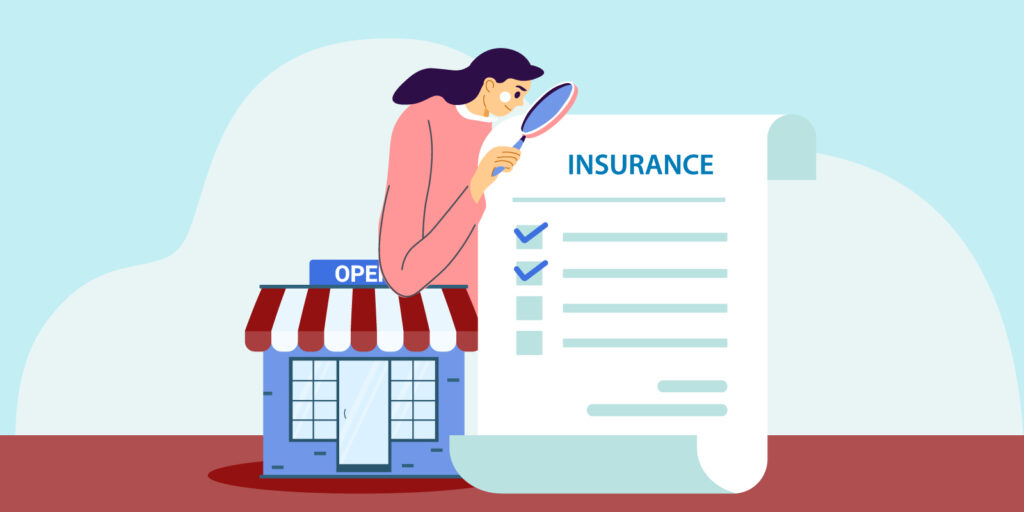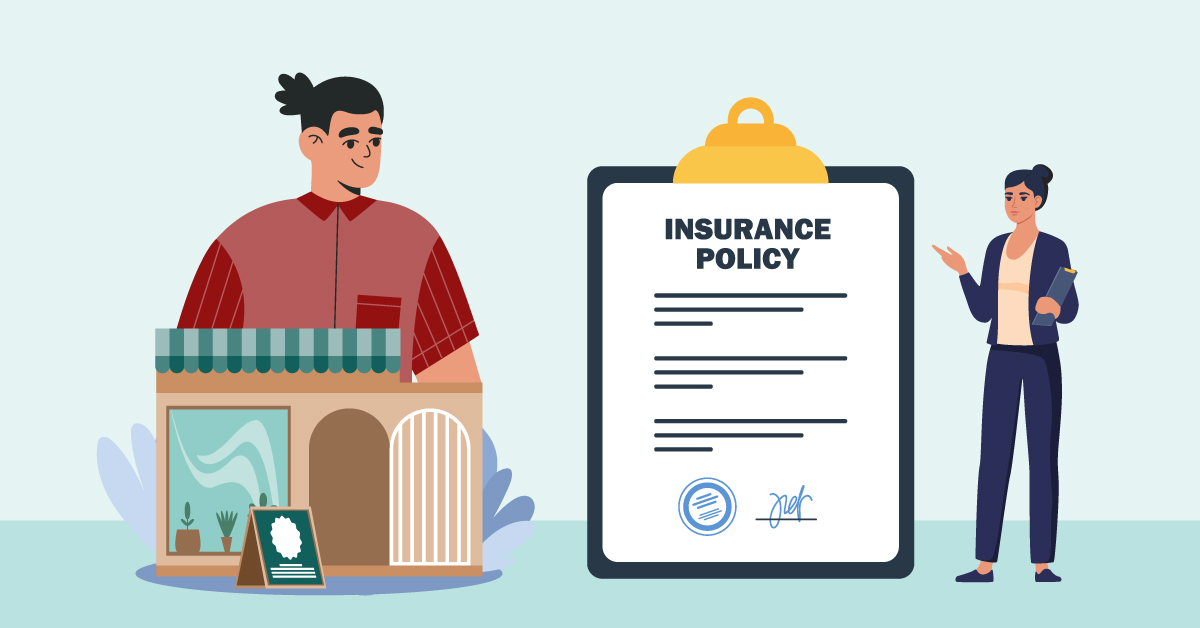Starting a small business is a major achievement. Whether you’ve invested thousands of dollars of your own money or hundreds of hours of sweat equity, it’s important to protect your hard work. Here are 10 types of small business insurance you should consider.
1. Liability Insurance
General liability insurance is one of the most important types of coverage to purchase. It protects you against financial losses arising from a wide range of circumstances, including the following:
- Slander/libel: If someone sues your company for slander or libel, general liability insurance will cover the cost of defending yourself, including legal fees and settlement costs.
- Bodily injury: General liability insurance protects you in the event that someone injures themselves on company property.
- Property damage: This insurance also protects you if someone’s property is damaged while it’s on your premises. For example, if a heavy object falls on a customer’s car, your liability insurance would pay for the damages.
- Medical expenses: Your liability policy should also cover medical or funeral expenses associated with an accident that occurs on your company’s property.
You may not need every type of small business insurance policy on this list, but you should absolutely consider purchasing general liability insurance to protect your business against significant losses.
2. Business Interruption Insurance
Business interruption insurance, commonly known as business income insurance, protects you against losses if you have to suspend operations due to a covered event. Examples of covered events include natural disasters and fires that cause significant damage. This type of small business insurance ensures that you can pay your fixed expenses even if you can’t conduct business. You can even use business interruption insurance to cover the cost of operating elsewhere until your business can resume operations at its regular location.
3. Workers’ Compensation Insurance

Many people assume that workers’ compensation insurance is only necessary for hazardous industries, such as mining, logging and chemical production. The truth is that accidents can happen in any workplace. For example, if an office clerk drops a box of heavy files on their foot, they may suffer a broken bone or some other type of injury. Workers’ compensation insurance protects small businesses in the event that an employee is injured on the job.
Every state has its own set of workers’ compensation laws, so check with an attorney if you’re not sure about the requirements. In many states, such as Alaska, businesses are required to purchase workers’ comp coverage if they have just one employee. Other states don’t require workers’ compensation insurance unless a business has several employees. For example, Georgia businesses must purchase this type of small business insurance once they have a minimum of three employees.
Some states have severe penalties for businesses that don’t comply with their workers’ compensation laws. California has some of the strictest requirements, as failing to provide workers’ comp coverage when required is a criminal offense. An employer who breaks the law is subject to a fine of at least $10,000 and up to 1 year of jail. Don’t put your business at risk by ignoring your workers’ comp obligations.
4. Cyber Liability Insurance
Cyber liability insurance protects your business against losses associated with a cyberattack. Comprehensive policies include coverage for data breaches, cyberattacks on data stored in other locations, network breaches and terrorist acts involving your network. Some policies will even pay for the cost of defending yourself against a lawsuit related to a cyberattack.
5. Employment Practices Liability Insurance
Business owners are responsible for complying with anti-discrimination laws and other laws designed to protect employees’ rights. Employment practices liability insurance protects you in the event that a current or former employee sues your company. It typically applies to the following types of claims:
- Discrimination
- Sexual harassment
- Wrongful termination
- Failure to promote
- Mismanagement of employee benefits (e.g., retirement plans)
- Wrongful discipline
- Negligent employee evaluations
Not only does this type of small business insurance cover the cost of defending yourself against the lawsuit, but it also pays for any settlements or judgments arising from the claim.
6. Professional Liability Insurance
Professional liability insurance is intended for doctors, attorneys, architects, accountants and other people who provide professional services. This type of small business insurance protects you in the event that a patient or client sues for negligence or malpractice. General liability insurance doesn’t cover mistakes, negligence, professional malpractice or misrepresentation of your expertise, so you may need professional liability insurance to cover the gap.
7. Commercial Property Insurance
Commercial property insurance protects you against losses related to the damage or destruction of company assets. For example, if a pipe bursts and damages several computers, your commercial property insurance would pay to replace the damaged items. Commercial property insurance also covers fire damage, theft and vandalism.
8. Commercial Auto Insurance
If you use at least one vehicle for business purposes, you should also consider purchasing commercial auto insurance coverage. A commercial auto policy covers cars, trucks, delivery vans, food trucks, box trucks and other vehicles. It typically applies in the following circumstances:
- Damage to a business vehicle
- Injuries to someone else caused by one of your company vehicles
- Injuries sustained by an employee while driving one of your vehicles
- Property damage caused by one of your company vehicles
9. Umbrella Insurance
When you purchase an insurance policy, you don’t get unlimited coverage. For example, your general liability coverage may have a limit of $1 million per person and $2 million per event. If a serious accident occurs on company property, you may max out your existing coverage, leaving you with thousands, or even millions, of dollars in out-of-pocket expenses. Business umbrella insurance protects your business in the event that you have a claim exceeding the limits on certain liability policies, such as general liability insurance and commercial auto insurance.
Umbrella insurance covers medical bills, legal costs, property damage, and judgments and settlements. It’s a good idea to purchase this type of coverage if any of the following apply to your business:
- You have employees who work at customers’ homes or businesses (e.g., landscapers, contractors).
- Your business is open to the public.
- Your employees frequently interact with customers and/or vendors.
10. Business Owner’s Policy
A business owner’s policy (BOP) combines commercial property insurance with business liability insurance. You may be able to roll several types of insurance into a BOP, such as data breach coverage and coverage for lost income due to the disruption of your company’s utility services. You should consider a business owner’s policy if any of the following apply to your business:
- You have employees who are at risk of getting injured or causing injury to one of your customers or vendors.
- You have a physical location, such as an office or a warehouse.
- There’s a risk that someone could sue your company for injuries or property damage.
- Your company owns expensive assets, such as computer servers or construction equipment.
- You collect a large amount of private data.
Business Insurance Is A Must
Owning your own business is an exciting endeavor, so long as you’ve taken the right steps to ensure you’re protected. Nothing is worse than starting a business and then promptly running into a fine or accident that leaves your new business vulnerable. Talk to an agent about your needs to find the right business insurance policy for you.
Related: Understanding Hazard Insurance And Why It Is Important





